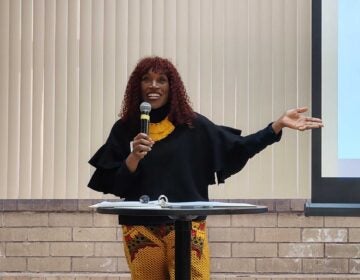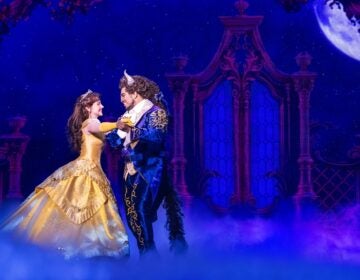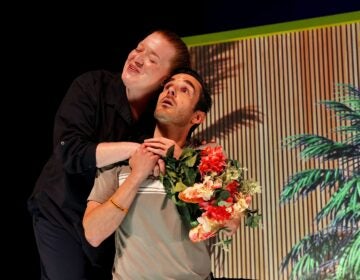Opera Philadelphia will premiere work about Alzheimer’s in the fall
Opera Philadelphia announces its 2018-2019 season, including the world premiere of an opera about Alzheimer's disease.
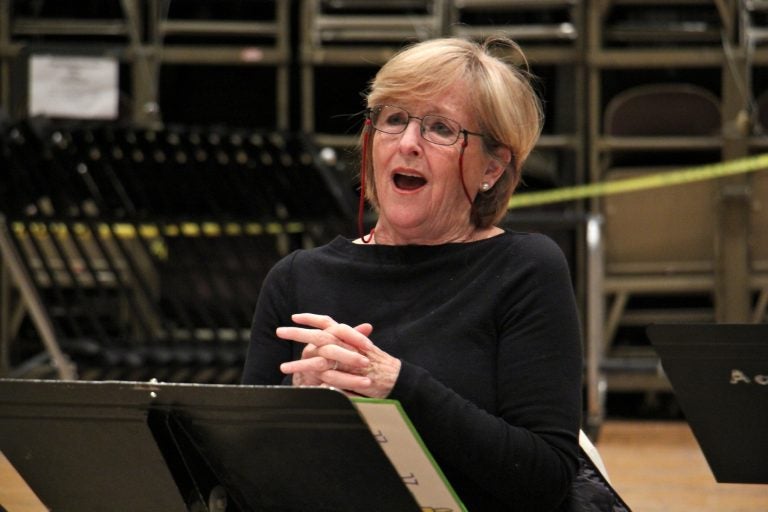
Frederica von Stade portrays a woman with Alzheimer's disease who falls in love in Opera Philadelphia's "Sky on Swings." (Emma Lee/WHYY)
Last week, the cast of the new opera “Sky on Swings” met in Philadelphia for a workshop. The opera is still being written for its premiere in September as part of Opera Philadelphia’s 018 Festival.
The two lead mezzo-sopranos — Frederica von Stade and Philadelphia native Marietta Simpson — are stars of the opera world; both have had long careers and are now of retirement age. Their voices may not have the same power of their youth, but composer Lembit Beecher is tailoring “Sky on Swings” to fit.
“I’m so excited to be working with these spectacular singers,” he said. “Singers whose voices are not the same as they were 30 years ago, but there’s a whole new world of expressivity they have access to. I’m working to find all these special moments in their voices, things they could not have done earlier in their careers.”
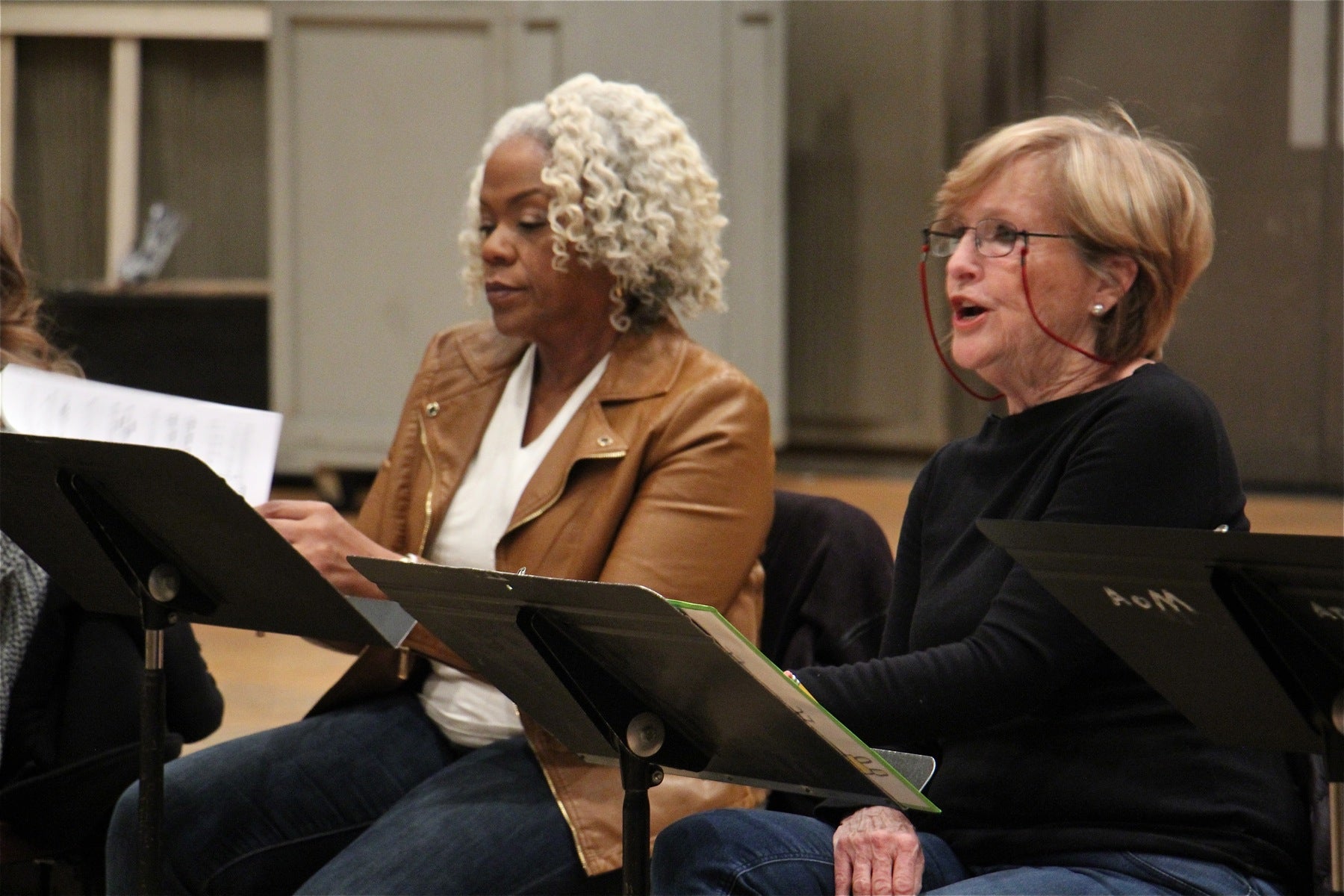
The opera is about two older women, both with Alzheimer’s disease, who fall in love. Because the story is about a disease that erodes memory, it is set in a space that floats between different perceptions of reality.
“When we lose our memories, as our personal history is released, maybe some of the obstacles to love are released. As our rational selves are released, what do we have access to?” said director Joanna Settle. “So setting is not really the right question.”
The opera is described as “hallucinatory,” using a degenerative brain condition to take liberties with time and space. The opera is not meant as a treatise on Alzheimer’s disease, generally, but a fictional story about how it might manifest in these particular characters, Beecher said.
“Someone told me who worked with a lot of Alzheimer’s patients and caretakers, that once you’ve seen one case of Alzheimer’s, you’ve seen one case of Alzheimer’s,” he said.
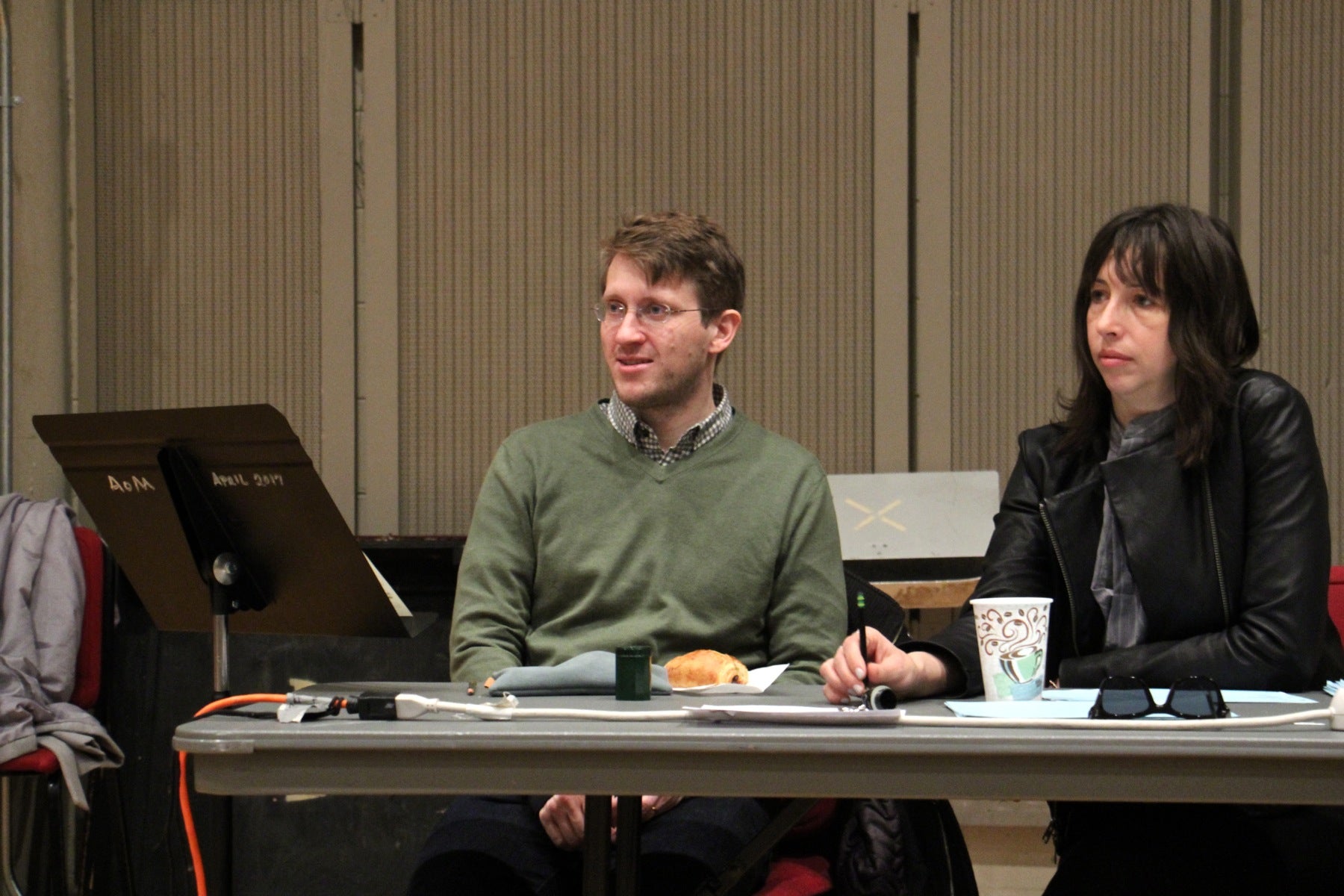
“Sky On Swings” will premiere along with four other 018 Festival productions, including the time-honored classic “Lucia di Lammermoor,” a multi-media production of Jean Cocteau’s “Ne Quittez Pas (Hold the Line),” the operatic drag cabaret “Queens of the Night” featuring Martha Graham Cracker and Stephanie Blythe as Blythely Oratonio, and the premiere of a multimedia operatic installation “Glass Handel” at the Barnes Foundation.
“Glass Handel” is the brainchild of countertenor Anthony Costanzo, who has been recording music by Phillip Glass and George Handel for his Decca Gold debut release in the fall.
“We’re living in a world where classical records don’t have the impact they once did,” said Costanzo. “I wanted to do something that felt like an installation but took people on a journey like a performance does.”
Designed by the high art and fashion production company Visionaire, “Glass Handel” will set up inside the Barnes Foundation on the Ben Franklin Parkway and feature several artists of different disciplines — including painting, choreography and filmmaking. Audience members will remain seated as their chairs move between stations in the Barnes atrium, Costanzo said.
All the while, the music of Glass and Handel — written three centuries apart — will dovetail into each other, closing the gap between baroque and contemporary eras.
“There’s an emotional catharsis to repetition. Handel uses da capo format; Glass uses any number of mathematical permutations to repeat his figures,” said Constanzo. “That repetition is innate to human psychology. We go over and over things in our heads, in time. This music taps into that and explores what it means.”
The 018 Festival launches Opera Philadelphia’s season, continuing in spring 2019 with productions of Benjamin Britten’s “A Midsummer Night’s Dream,” Mozart’s “Don Giovanni,” Puccini’s “La boheme,” and the premiere of a chamber opera “Empty the House” by Opera Philadelphia composer-in-residence Rene Orth, to be produced by Curtis Opera Theater.
WHYY is your source for fact-based, in-depth journalism and information. As a nonprofit organization, we rely on financial support from readers like you. Please give today.



